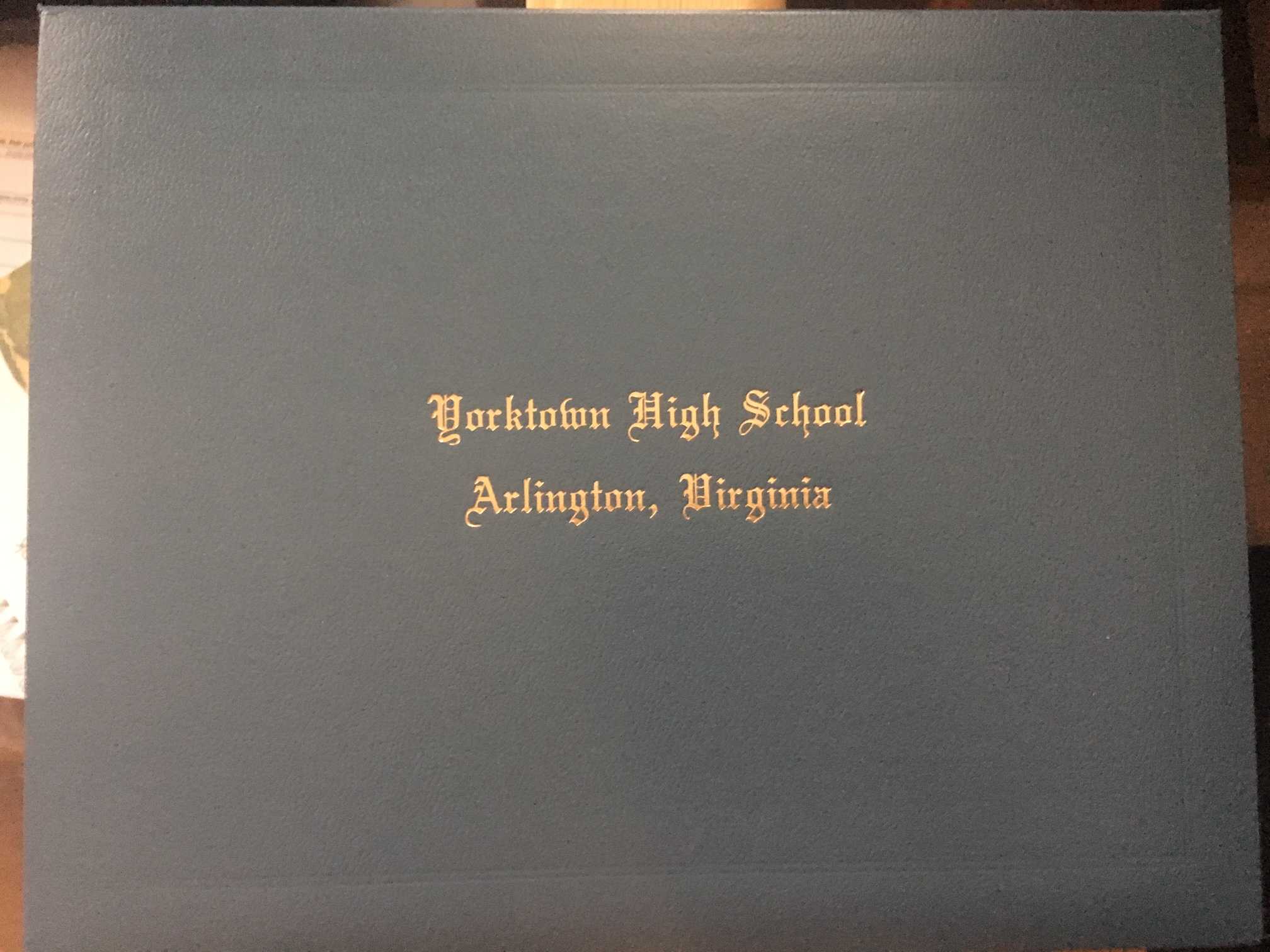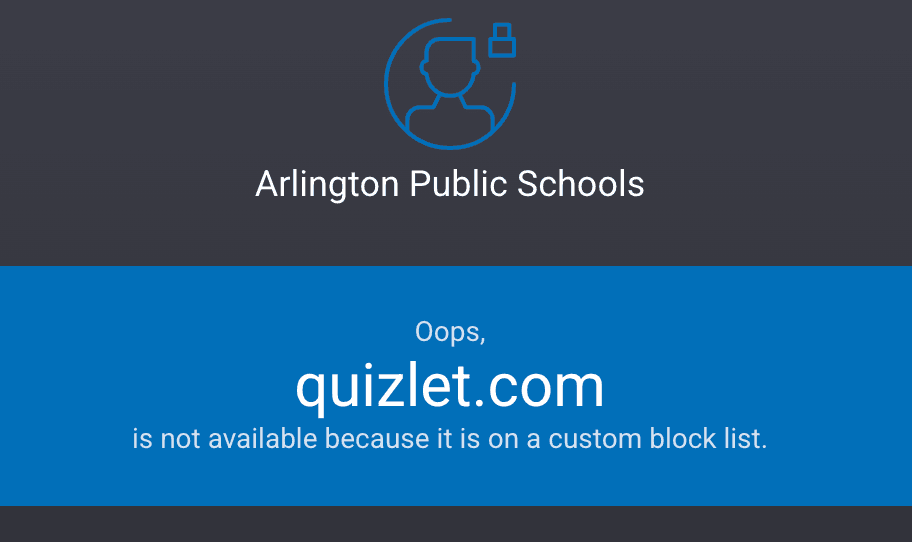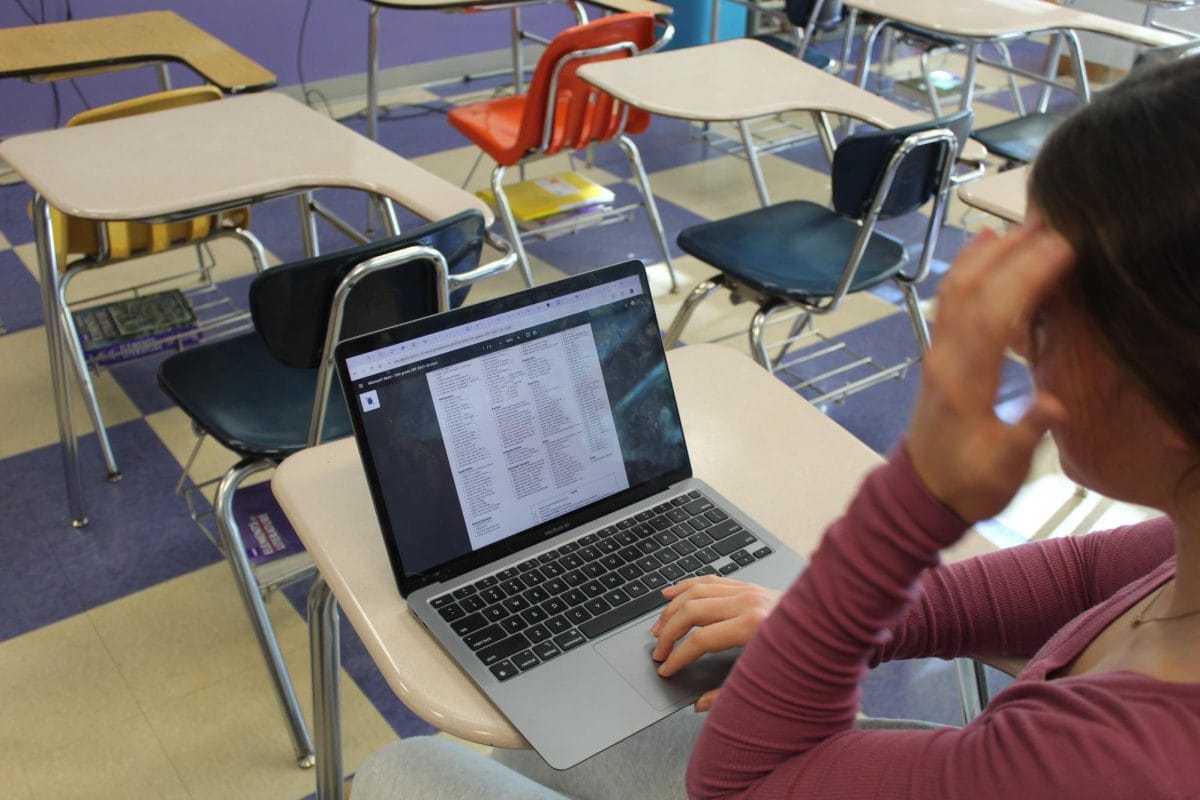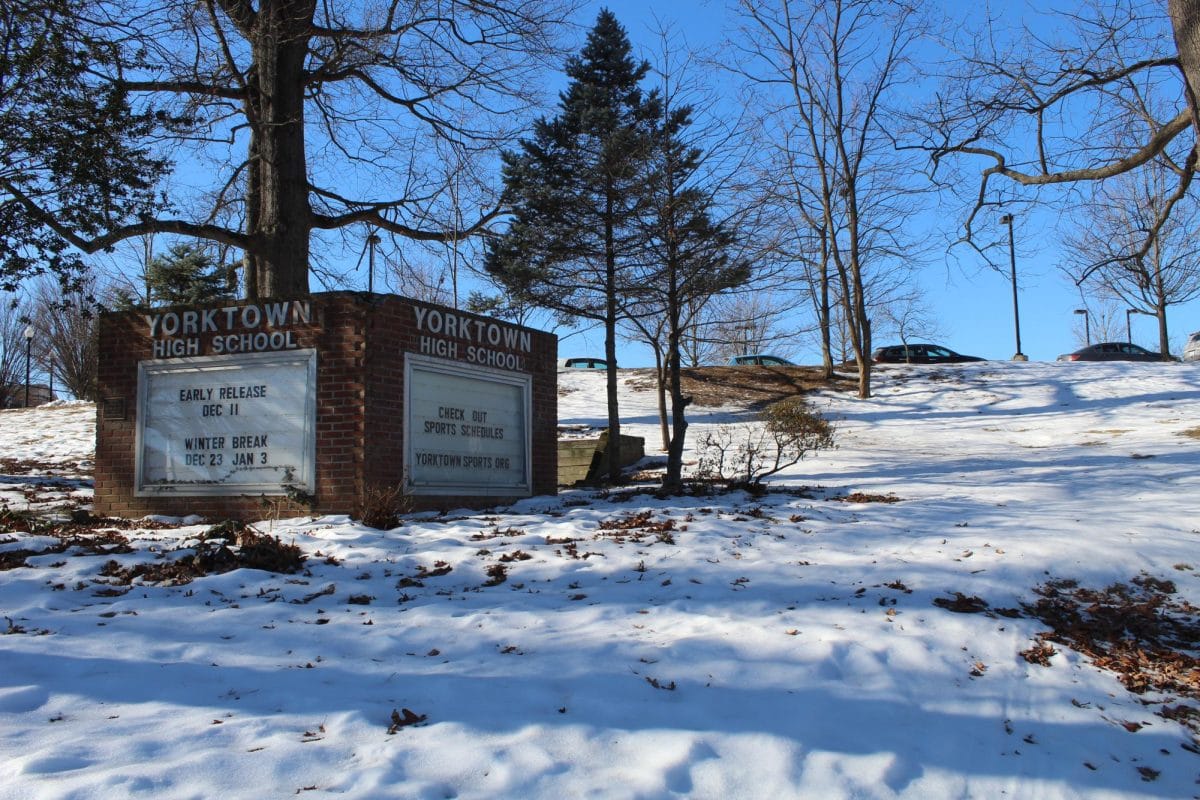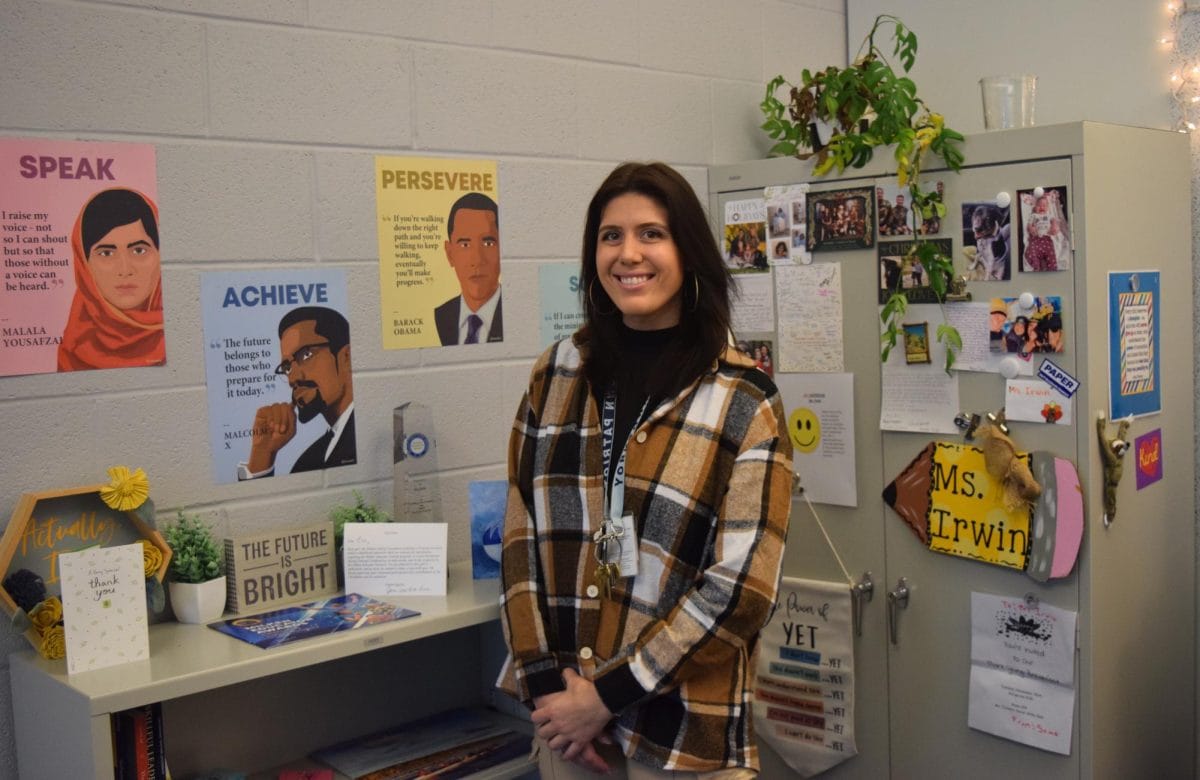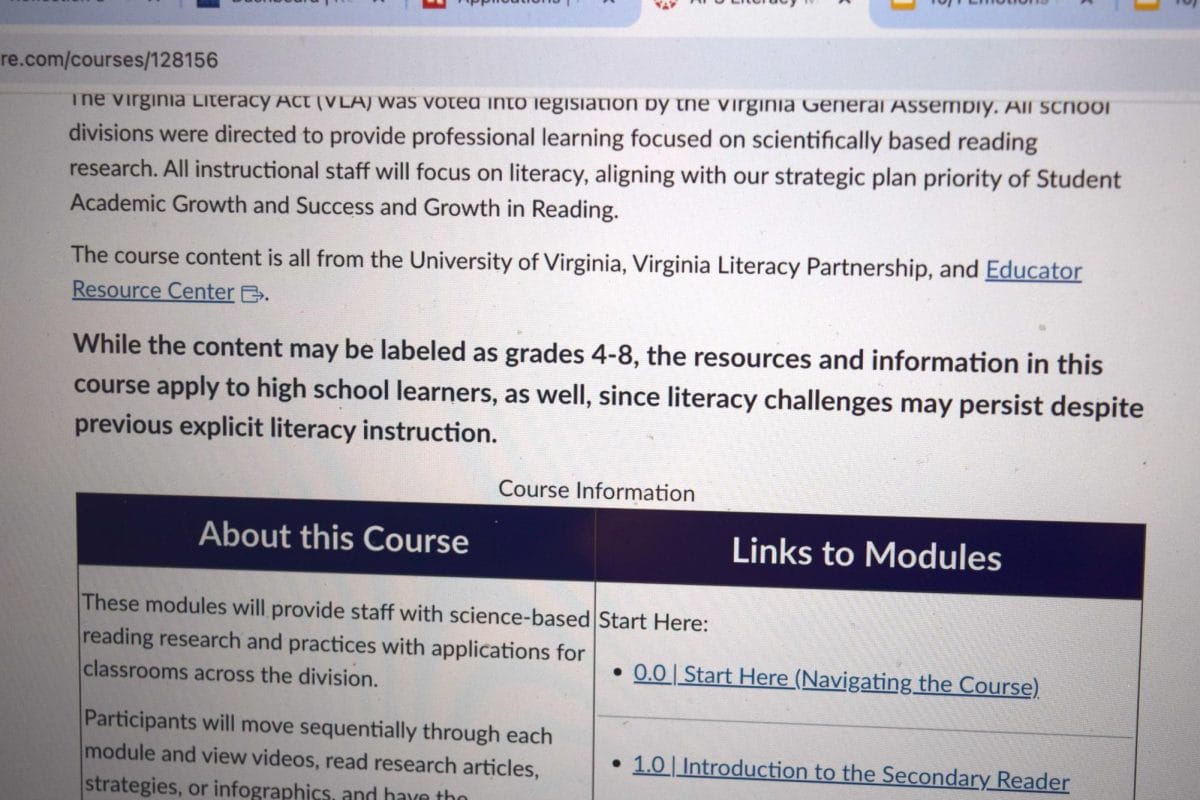One of the best parts about transitioning from middle school to high school is the idea of freedom. Freedom takes a whole new meaning in high school, as the opportunities are endless. One can fill his or her schedule with a broad range of electives, or load up on extra social studies or science classes. However, starting in the 2017-2018 school year, students may not have as wide of a range of classes to choose from. The Virginia Board of Education has proposed a plan for a new diploma for students, which would completely change the current system.
The current system allows students to choose to either receive a Standard Diploma or an Advanced Diploma. The Standard option only requires 22 standard credits and six verified credits, whereas the Advanced requires 26 standard credits and nine verified credits. While this may just appear to be a bunch of numbers, the difference between the two is that with a Standard Diploma students are able to take more electives and explore new interests, rather than sticking to the typical math, science, history and English classes.The new diploma would require all students to have 26 standard credits and four verified credits, which means each student would follow the same path for the same diploma. Many students rely on the Standard Diploma, for some are not able to work in certain classrooms and would rather focus on classes they are interested in, such as art, photography or even classes at the career center.
While the new diploma system would greatly affect students, it would also put many teachers’ jobs at risk. Some teachers only teach electives, such as photography teacher Allen Beland.
“With the increase of required core courses that students will have to take, that’s going to leave very few choices for students to take electives. So what that means for me is, will the student choose an art class, or will they choose a finance class or another elective. It could possibly shrink the art department, so with that said that means art teachers, myself included, are in jeopardy of not working here,” said Beland.
While the number of standard credits a student must obtain would increase, the number of verified credits would actually decrease to four. Currently, verified credits must be earned by passing Standards of Learning (SOL) tests, but in the new proposed diploma, it is said they can be earned in “multiple ways,” but many seem to be confused about what that actually means.
“What some people would say is ‘wow, this looks great because you go down to just four verified credits,’ however, there is now going to be a part called the ‘applied knowledge and skills.’ We don’t know exactly what that looks like yet,” said head of counseling Mark Rooks.
One theory is that the “applied knowledge and skills” would aim to resemble what Wakefield High School does for their students. At Wakefield, every senior has to complete a senior project to graduate. They start it ninth to tenth grade, and then spend their entire high school career working on it. Senior year, it is presented to a 4-6 person panel to be evaluated.
The idea of the applied knowledge and skills is overall pretty unclear, as is the rest of the proposed diploma. It seems as Virginia is trying to make all schools have a system that resembles Wakefield’s. This may also use up another period in the day, which would be one more thing to take a period away from students.
The question that everyone is asking is: “why would Virginia feel the need to change the current system?” After all, if it is not broken, do not fix it, right?
“Virginia has continued to keep changing the diplomas. And exactly why, I’m not sure. Colleges don’t even look at the difference between standard and advanced diplomas, because they keep changing the diplomas. What the college is always going to look at is, how rigorous is your diploma? If it goes to this, regardless of what the diploma looks like when you graduate, they are gonna look and see how does your transcript reflect what you’re going after and how rigorous it is. The colleges don’t buy into all the different diploma types,” said Rooks.
Faculty members were sent an email about the new diploma and its layout, but most students are uninformed of the possible changes in the future. While it will not affect students who are already in high school, it is expected that it will upset parents and students if it goes into action for the class of 2021.
“As with anything, every year there is some sort of change in the curriculum, some sort of change in the programs here and I think at first the students react negatively because they are no different than the teachers here, and we get used to a certain system and then that system changes. Any time, not even here at Yorktown High School, any time in society when something changes abruptly, there is a pushback and there is resistance. After a couple of years, they will accept that this is their fate and they have to go along with this, or not graduate high school,” said Beland.
Since the new diploma is only a proposal, there are still numerous questions about the topic and an immense amount confusion, from both teachers and students. It is known that there will be less chances for freedom for students, which overall, may end up hurting students more than helping. It is crucial for the Virginia Board of Education to consider students who may not be able to adjust to the changes, or take the pressure of more standard credits, before making any serious decisions.
“If you listen to the student conversations, they are already upset with the elective choices like the online and finance class they are required to take. Just the general atmosphere of students is that they want more electives. The school is a pressure cooker as is, and I think the new diploma is just going to add to the pressure,” said Beland.




































